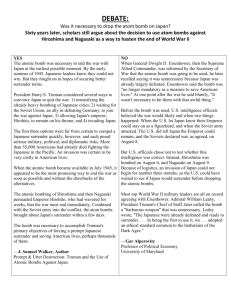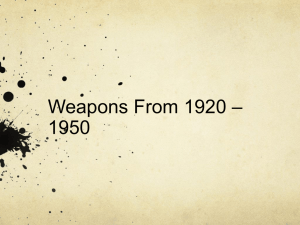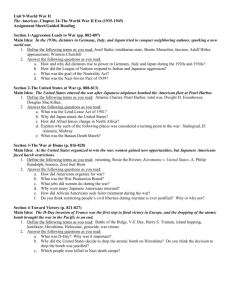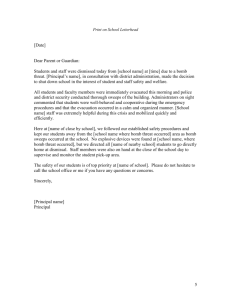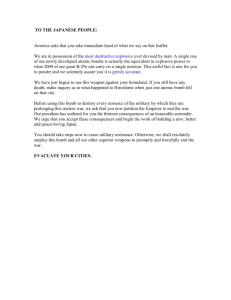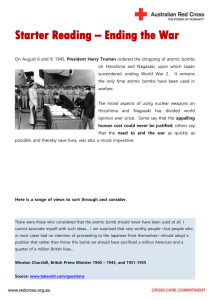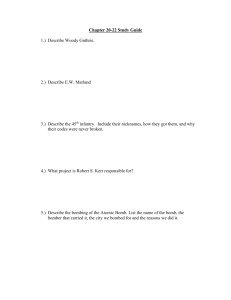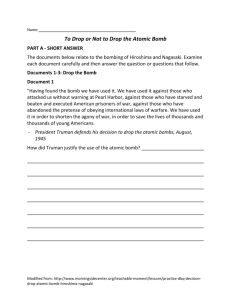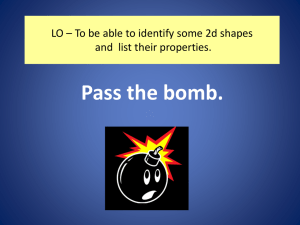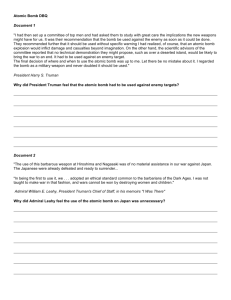Anti-Bomb
advertisement
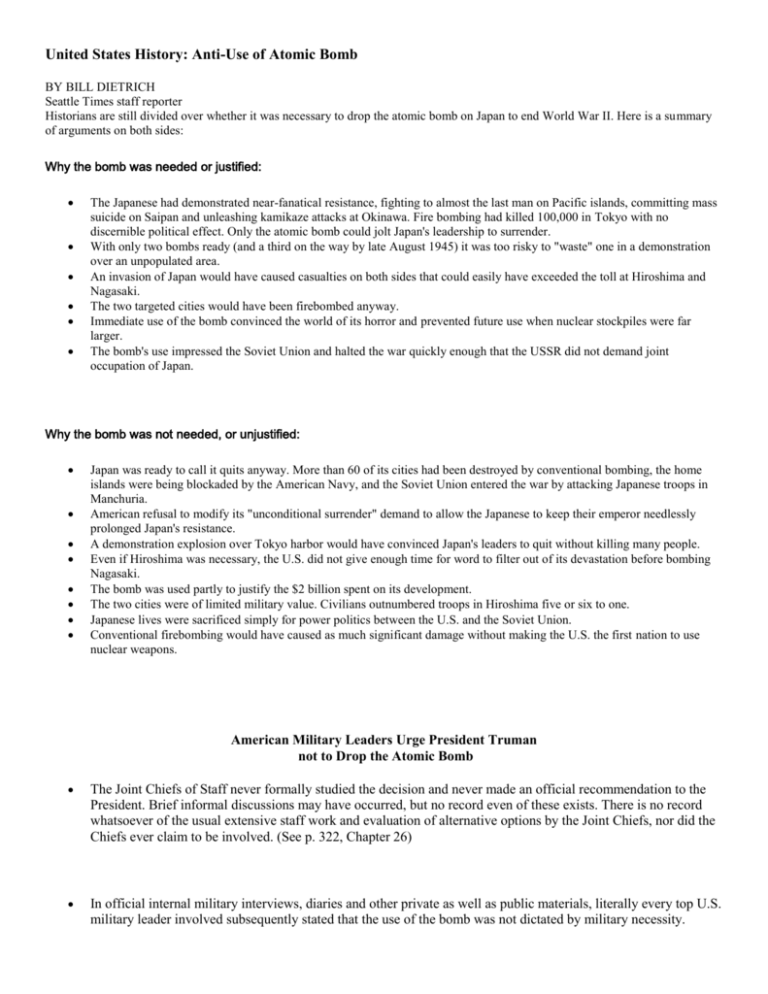
United States History: Anti-Use of Atomic Bomb BY BILL DIETRICH Seattle Times staff reporter Historians are still divided over whether it was necessary to drop the atomic bomb on Japan to end World War II. Here is a summary of arguments on both sides: Why the bomb was needed or justified: The Japanese had demonstrated near-fanatical resistance, fighting to almost the last man on Pacific islands, committing mass suicide on Saipan and unleashing kamikaze attacks at Okinawa. Fire bombing had killed 100,000 in Tokyo with no discernible political effect. Only the atomic bomb could jolt Japan's leadership to surrender. With only two bombs ready (and a third on the way by late August 1945) it was too risky to "waste" one in a demonstration over an unpopulated area. An invasion of Japan would have caused casualties on both sides that could easily have exceeded the toll at Hiroshima and Nagasaki. The two targeted cities would have been firebombed anyway. Immediate use of the bomb convinced the world of its horror and prevented future use when nuclear stockpiles were far larger. The bomb's use impressed the Soviet Union and halted the war quickly enough that the USSR did not demand joint occupation of Japan. Why the bomb was not needed, or unjustified: Japan was ready to call it quits anyway. More than 60 of its cities had been destroyed by conventional bombing, the home islands were being blockaded by the American Navy, and the Soviet Union entered the war by attacking Japanese troops in Manchuria. American refusal to modify its "unconditional surrender" demand to allow the Japanese to keep their emperor needlessly prolonged Japan's resistance. A demonstration explosion over Tokyo harbor would have convinced Japan's leaders to quit without killing many people. Even if Hiroshima was necessary, the U.S. did not give enough time for word to filter out of its devastation before bombing Nagasaki. The bomb was used partly to justify the $2 billion spent on its development. The two cities were of limited military value. Civilians outnumbered troops in Hiroshima five or six to one. Japanese lives were sacrificed simply for power politics between the U.S. and the Soviet Union. Conventional firebombing would have caused as much significant damage without making the U.S. the first nation to use nuclear weapons. American Military Leaders Urge President Truman not to Drop the Atomic Bomb The Joint Chiefs of Staff never formally studied the decision and never made an official recommendation to the President. Brief informal discussions may have occurred, but no record even of these exists. There is no record whatsoever of the usual extensive staff work and evaluation of alternative options by the Joint Chiefs, nor did the Chiefs ever claim to be involved. (See p. 322, Chapter 26) In official internal military interviews, diaries and other private as well as public materials, literally every top U.S. military leader involved subsequently stated that the use of the bomb was not dictated by military necessity. Navy Leaders (Partial listing) In his memoirs Admiral William D. Leahy, the President's Chief of Staff--and the top official who presided over meetings of both the Joint Chiefs of Staff and the Combined U.S.-U.K. Chiefs of Staff--minced few words: [T]he use of this barbarous weapon at Hiroshima and Nagasaki was of no material assistance in our war against Japan. The Japanese were already defeated and ready to surrender. . . . [I]n being the first to use it, we . . . adopted an ethical standard common to the barbarians of the Dark Ages. I was not taught to make war in that fashion, and wars cannot be won by destroying women and children. (See p. 3, Introduction) Privately, on June 18, 1945--almost a month before the Emperor's July intervention to seek an end to the war and seven weeks before the atomic bomb was used--Leahy recorded in his diary: It is my opinion at the present time that a surrender of Japan can be arranged with terms that can be accepted by Japan and that will make fully satisfactory provisions for America's defense against future trans-Pacific aggression. (See p. 324, Chapter 26) Fleet Admiral Chester W. Nimitz, Commander in Chief of the Pacific Fleet stated in a public address given at the Washington Monument on October 5, 1945: The Japanese had, in fact, already sued for peace before the atomic age was announced to the world with the destruction of Hiroshima and before the Russian entry into the war. (See p. 329, Chapter 26) . . . [Nimitz also stated: "The atomic bomb played no decisive part, from a purely military standpoint, in the defeat of Japan. . . ." Admiral William F. Halsey, Jr., Commander U.S. Third Fleet, stated publicly in 1946: The first atomic bomb was an unnecessary experiment. . . . It was a mistake to ever drop it. . . . [the scientists] had this toy and they wanted to try it out, so they dropped it. . . . It killed a lot of Japs, but the Japs had put out a lot of peace feelers through Russia long before. (See p. 331, Chapter 26) The Real Reason Truman dropped the Atomic Bomb "Secretary of State James Byrnes wanted to use the atomic bomb to end the war before 'Moscow could in so much on the kill.' Byrnes did not argue that is was necessary to use the bomb against the cities of the Japan in order to win the war.... Byrnes's...view was that our possessing and demonstrating the bomb would make Russia more manageable." President Truman wanted to end the war before the Russians could enter the war against Japan in Asia. Truman didn't want Russia to play a major role in determining the post-war peace in Asia. While at the Potsdam meeting, Truman National Security Advisor, James Byrnes advised Truman that a combat display of the weapon might be used to bully Russia into submission, and the the bomb "might well put us in a position to dictate our own terms at the end of the war."
